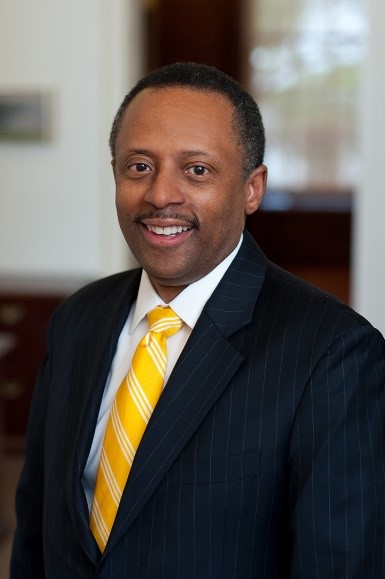 Born in Norfolk, Virginia, Earl Lewis came of age during the hard struggle for school integration in the South, and nationwide, that followed the landmark Brown v. Board of Education decisions (1954-1955). When Lewis studied at Concordia College between 1974 and 1978, the Civil Rights, Black Power, and Black Student Movements had already instigated momentous racial reform in the country’s colleges and universities. He participated in the Black Student Strike in the spring of 1976, a memorable marker in Concordia’s history as black student enrollments reached high tide before receding. Lewis’s academic achievements as an undergraduate anticipated a storied career as a scholar, administrator, innovator and entrepreneur, and leader in higher education. Serious and steady, yet affable and down-to-earth, Lewis embodies Concordia’s commitment to influence the world through studied preparation and dedicated service. Recipient of countless honors and awards, Lewis joined the college’s Board of Regents in 2008 and became chair in 2018.
Born in Norfolk, Virginia, Earl Lewis came of age during the hard struggle for school integration in the South, and nationwide, that followed the landmark Brown v. Board of Education decisions (1954-1955). When Lewis studied at Concordia College between 1974 and 1978, the Civil Rights, Black Power, and Black Student Movements had already instigated momentous racial reform in the country’s colleges and universities. He participated in the Black Student Strike in the spring of 1976, a memorable marker in Concordia’s history as black student enrollments reached high tide before receding. Lewis’s academic achievements as an undergraduate anticipated a storied career as a scholar, administrator, innovator and entrepreneur, and leader in higher education. Serious and steady, yet affable and down-to-earth, Lewis embodies Concordia’s commitment to influence the world through studied preparation and dedicated service. Recipient of countless honors and awards, Lewis joined the college’s Board of Regents in 2008 and became chair in 2018.